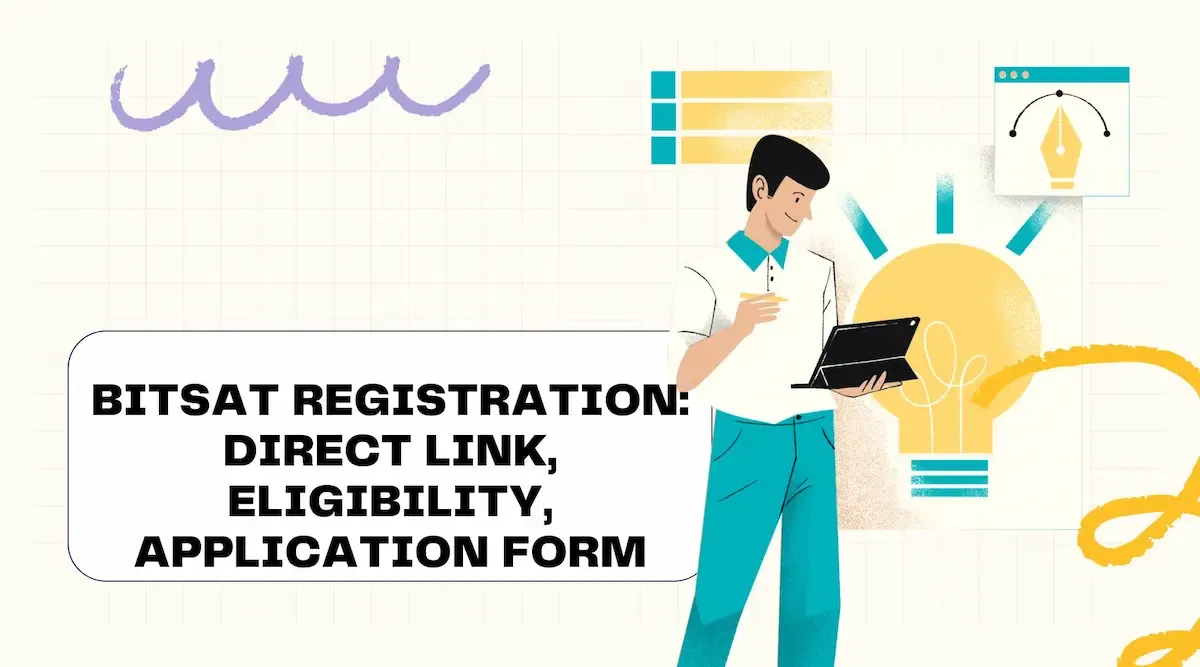Careers in Electronics and communication engineering involves both government & private jobs. It includes positions like electrical engineer, technical director etc.
Careers in electronics and communication engineering include jobs related to the engineering and ITI industries. It involves developing state-of-the-art technologies that help in sustaining the communication mediums on the long run.
The career of an electronics and communication engineering jobs involves dealing with communication systems, and mechanisms and innovating eco-friendly and high-tech electronics and communication technologies in their job role.
Why Study Electronics and Communication Engineering?
The study of electronics and communication engineering assists in addressing the challenges associated with modern communication systems. It trains learners to become qualified professionals with the relevant skills to handle the new challenges in the electronics and communication industry.
In the following industries, one can begin a promising career after completing this course, including defence, electronics manufacturing, and hardware component manufacturing. A career in electronics and communication engineering involves the following things.
- It allows learners to adapt and pick skills connected to electronics and communications engineering.
- It equips learners to address modern communication challenges and provides cutting-edge resolutions.
- The course trains learners to become professionals in Electronics and Communications Engineering by developing and manufacturing communication devices as a part of their job.
Also Read: Top 5 Emerging Careers in 2025
Career Paths in Electronics and Communication Engineering
Modern communication systems have made careers in Electronics and Communications Engineering more popular recently. Admissions to Electronics and Communication Engineering courses are based on various exams.
Candidates understand the basics of Control Systems, Analog Communications, Electronics and Analog Electronic Circuits, Digital Signal Processing, etc. After completing the courses, one can take up the following careers in electronics and communication engineering.
- Electronics Engineer: Electronic engineers design computers, heavy machinery, televisions, mobile phones, and other electrical gadgets. They also manage technical loopholes or errors encountered by the production team.
- System Analyst: A System Analyst deals with the supervision of the IT system of an organisation. They ensure regular care of hardware and software segments of the IT system and address problems of employees.
- Communications Engineer: A Communications Engineer is liable for two major activities- designing communication appliances and telling novel techniques to enhance their functioning and performance. They also administer the development of new communication devices and provide resolutions.
- Design Engineer: Design Engineers are accountable for researching, designing and watching the creation of new communication gadgets and electrical inventions. To protect their ideas and intellectual property, they patent their designs and products.
- Desktop Support Engineer: The job involves dealing with various security issues in a company. It involves power supply shortages or critical infrastructure failures in a small or large IT system.
- ASIC Engineer: ASIC design engineers design PDS statements, optimize logic design, and construct architectural models for ASIC systems. They specify network solutions, resolve system complexities, and improve simulation optimization.
- Embedded Engineer: An embedded engineer looks after embedded systems or software. They design, develop, and maintain embedded systems in products, which involves software development & IT systems knowledge.
- Network Support Engineer: Network support engineers usually work on the IT network of any organization. It involves fixing issues, tracking security, working on cyber threat protection, etc.
- Software Engineer: A software engineer is usually responsible for working on software systems in any organization. Their tasks involve programming, working on various software, fixing system bugs, etc.
- Quality Analyst: A Quality Analyst is responsible for verifying the security of any system or program accuracy. Their day-to-day tasks involve pointing out bugs, making quality reports, handling programmers, etc.
Top Recruiters in Electronics and Communication Engineering Jobs
There is a huge scope in careers in electronics and communication engineering after completing studies. Below are some of the top recruiters that promise a flourishing careers in electronics and communication engineering for individuals:
- Texas Instruments
- BEL
- Siemens
- Intel
- HPCL
- Philips
- BHEL
- Nvidia
- DMRC
- Reliance
- DRDO
- ISRO
- Motorola
- HCL Technologies
- Samsung
- Philips
- Wipro
- Intel
- Tech Mahindra
- Honeywell
- Accenture
- Havells India Limited
Electronics and Communication Engineering Jobs Salary
In careers in electronics and communication engineering the professionals' salary ranges form 2.25 L to 20 L based on skills, experience and efficiency. Below given are the salary ranges for various job profiles.
| Job Positions | Annual CTC |
|---|---|
| Design Engineer | INR 4 - 5 L |
| ASIC Engineer | INR 20 L |
| Embedded Engineer | INR 16 L |
| Network Support Engineer | INR 3-4 L |
| Software Engineer | INR 4-12 L |
| Quality Analyst | INR 4.5 L |
| Technician | INR 2-2.5 L |
| Chief Technical Officers | INR 18 L |
| ECE Engineering Consultant | INR 20 L |
| Data Analyst | INR 5-8 L |
Electronics and Communication Engineering Specializations
Careers in electronics and communication engineering involve studying for a master's in electronics and communication engineering as well. After completing a bachelor's, candidates must select a specialisation for their master's. Candidates must also do industrial training and get exposure to establish a career.
Electronics and communication engineering specialisations consist of the following:
- Telecommunications Engineering
- Artificial Intelligence and Machine Learning
- Networking and Communications
- Signal Processing
- VLSI Design Engineering
- Control Engineering
Also Check: What is Engineering? Definition, and Types
How to Become an Electronics and Communication Engineer?
Candidates willing to earn an electronics and communications engineering degree can do this by studying science in their higher secondary. Students can follow the suggestions below to start a career in electronics and communication engineering.
- Study PCM in Higher Secondary
Students must study maths and physics as mandatory subjects in their higher secondary education. Courses in advanced mathematics, such as algebra, calculus, trigonometry, and physics, can serve as a strong foundation for electronics and communications engineering.
- Earn an Engineering Bachelor's Degree
Candidates must secure at least 50% marks in science subjects like mathematics and physics in higher secondary to qualify for engineering exams. The engineering exams include JEE Main, JEE Advanced, BITSAT, OJEE, etc. Students must crack these exams to enrol in top engineering colleges like IIT and NITs.
- Build Experience
Students must build practical work experience for careers in electronics and communication engineering. Candidates can do on-campus internships or off-campus and develop their portfolio for their careers in electronics and communication engineering. It will enhance skills and be ahead of the competition in the long run. In addition, obtaining key certifications like the Professional Engineer (PE) licence requires on-the-job experience as well.
- Acquire Certifications
Prospects after graduating must enhance their skills through engineering certifications. They can take engineering certifications with the help of initial work experience acquired from their internships.
- Build Industry Specific Resume
After being job-ready, candidates can build industry-specific job resumes to start their careers in electronics and communication engineering. It will increase their chances of getting the right job at the right time. Creating a winning resume will leave a positive impact on the recruiters and make them land their dream job.
Also Read: 5 Key Steps for Career Planning and Development
Also Check: Electrical Engineering Vs Electronics and Communication Engineering: Which One to Choose?
Electronics and Communication Engineering Top Colleges
There are ample colleges that provide electronics and communication engineering courses that give students a kickstart in their careers in electronics and communications engineering. Below are some of the top colleges offering courses in electronics and communications engineering.
| NIRF Ranking | Name of the College | Total Program Fees (Yearly) |
|---|---|---|
| 5 | Indian Institute of Technology, Roorkee | INR 7 lakhs |
| 7 | Indian Institute of Technology, Guwahati | INR 8 lakhs |
| 16 | National Institute of Technology, Warangal | INR 8 lakhs |
| 11 | Vellore Institute of Technology, Vellore | INR 14 lakhs |
| 18 | SRM University, Chennai | INR 15 lakhs |
| 21 | National Institute of Technology, Rourkela | INR 7 lakhs |
| 27 | Siksha O Anusandhan University, Bhubaneswar | INR 10 lakhs |
| 54 | UPES Dehradun | INR 10 lakhs |










